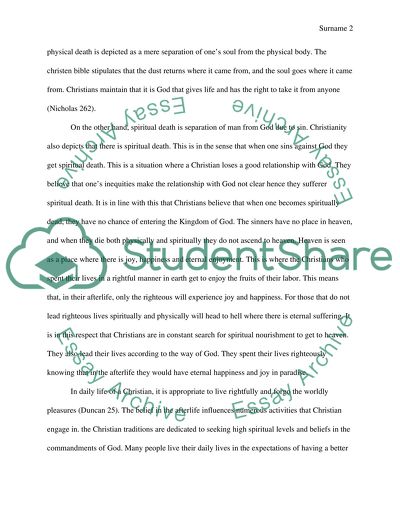Cite this document
(“Death and the Afterlife of Christianity and Buddhism Essay”, n.d.)
Retrieved from https://studentshare.org/religion-and-theology/1494134-death-and-the-afterlife-of-christianity-and
Retrieved from https://studentshare.org/religion-and-theology/1494134-death-and-the-afterlife-of-christianity-and
(Death and the Afterlife of Christianity and Buddhism Essay)
https://studentshare.org/religion-and-theology/1494134-death-and-the-afterlife-of-christianity-and.
https://studentshare.org/religion-and-theology/1494134-death-and-the-afterlife-of-christianity-and.
“Death and the Afterlife of Christianity and Buddhism Essay”, n.d. https://studentshare.org/religion-and-theology/1494134-death-and-the-afterlife-of-christianity-and.


